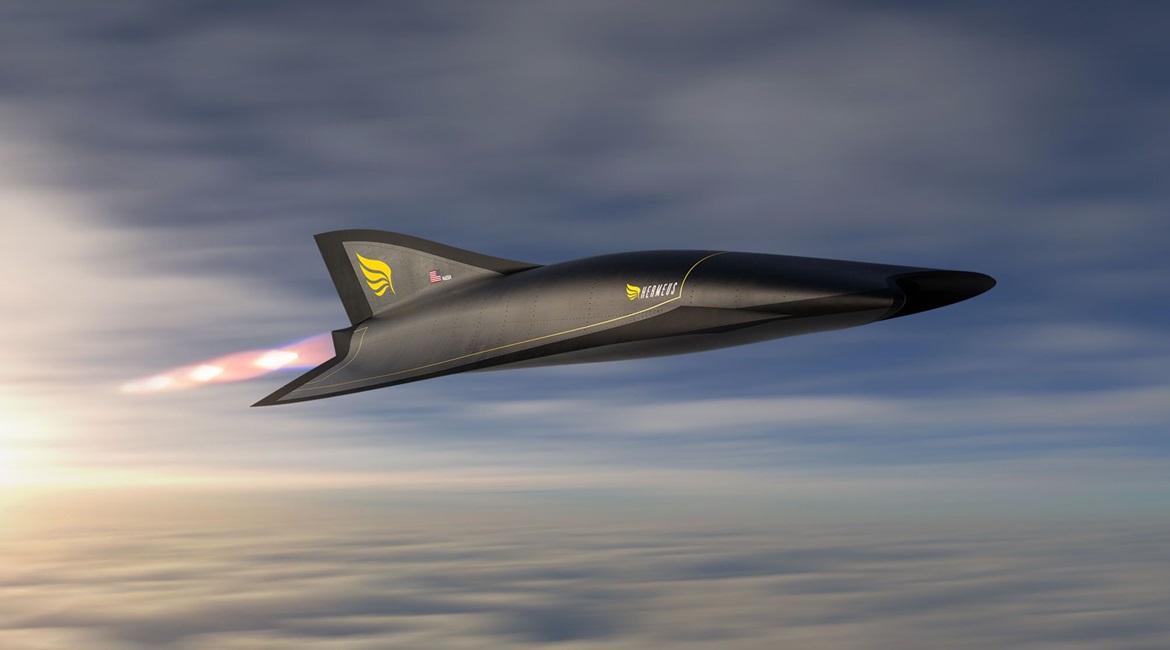
The US Air Force (USAF) on 30 July awarded Hermeus a USD60 million jointly funded contract to accelerate the commercial development of hypersonic aircraft and propulsion systems, according to a service statement.
The Quarterhorse will validate Hermeus' proprietary turbine-based combined cycle (TBCC) engine that is based around the General Electric J85 turbojet propulsion system. Hermeus is calling the Quarterhorse the first in a line of autonomous high-speed aircraft.

A rendering of Hermeus' Quarterhorse aircraft that will validate the company's proprietary turbine-based combined cycle engine. The US Air Force on 30 July awarded the company a USD60 million jointly funded contract to accelerate the commercial development of hypersonic aircraft and propulsion systems. (Hermeus)
Hermeus is aiming to flight test its TBCC engine across the full flight envelope for less than USD100 million by taking a different approach than those used in traditional high-speed flight-test programmes. Hermeus will leverage autonomous and reusable systems, “ruthlessly” focused requirements, and a hardware-rich programme.
Skyler Shuford, Hermeus founder and COO, told Janes on 5 August that the only two design requirements for the Quarterhorse are to reach Mach5 and be reusable. Hermeus is essentially building the most stripped-down aircraft that can flight test its engine, he said. The company will build multiple Quarterhorse iterations, which Shuford said will allow it to strategically decide if it wants to aggressively push the envelope for learning, potentially to failure, because it will have more attempts with later aircraft.
Hermeus is developing the Quarterhorse to serve as a test platform for the modified J85. Hermeus believes the Quarterhorse will be the fastest aircraft flying when it is built and Shuford said the company has a goal of starting Quarterhorse flight-testing in late 2022.
Looking to read the full article?
Gain unlimited access to Janes news and more...




